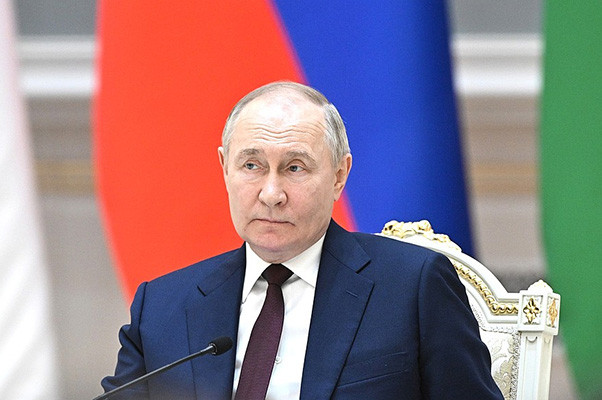
Putin Approves New Migration Policy Concept of Russia for 2026–2030
Putin Approves New Migration Policy Concept of Russia for 2026–2030
Tashkent, Uzbekistan (UzDaily.com) — Russian President Vladimir Putin has approved the new Concept of the State Migration Policy of the Russian Federation for 2026–2030, which will replace the current version in effect since 2018 and expiring at the end of 2025.
According to the document, the Concept defines the goals, key principles, objectives, and directions for implementing Russia’s migration policy over the next five years. It is based on an analysis of existing practices in regulating the entry and exit of foreign citizens and stateless persons, the conditions of their stay and residence in Russia, migration registration procedures, the granting of temporary asylum, and the acquisition of citizenship, as well as a modern understanding of national and global challenges related to international migration.
The document consists of nine sections and 46 provisions. Among the expected outcomes by 2030 are a reduction in the number of foreigners residing illegally in Russia, a decrease in crime rates involving migrants, a decline in the share of migrant children not attending school, an increase in the number of foreign students in Russian universities, and growth in the number of migrants who have relocated to Russia for permanent residence and share traditional Russian spiritual and moral values.
The Concept notes that the political and economic pressure exerted by certain countries on Russia has not significantly affected the structure of migration flows. Migration dynamics remain relatively stable and have returned to pre-pandemic levels. However, the number of labor migrants is projected to increase by 2030 due to the continuing demand for foreign workers.
The document emphasizes the need to improve migration policy in light of new national security threats. It should remain favorable even for those who have left the country, provided they become fully integrated members of society.
The Concept provides for measures to strengthen employer accountability for compliance with migration regulations, create conditions for the return of residents of newly incorporated regions who left the country during the Special Military Operation, and support the relocation of foreigners who share Russia’s traditional spiritual and moral values.
Special attention is given to the education and adaptation of migrants. The policy envisions developing mechanisms to attract talented foreign students to Russian universities while simultaneously limiting the stay of unemployed migrants.
It also includes initiatives for teaching the Russian language and cultural norms, promoting moral and spiritual integration, and preventing the formation of ethnic or polyethnic enclaves.
The document further notes that the demand for low-skilled foreign labor is largely driven by lower costs and inadequate labor organization, which calls for stricter regulation of their recruitment and working conditions.